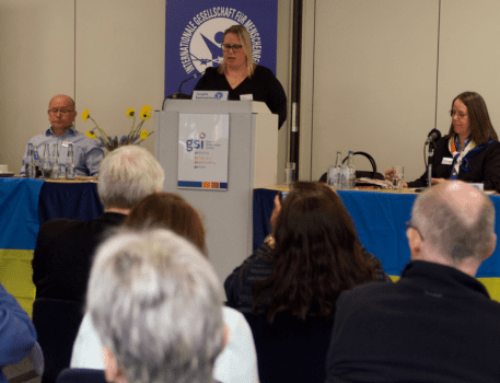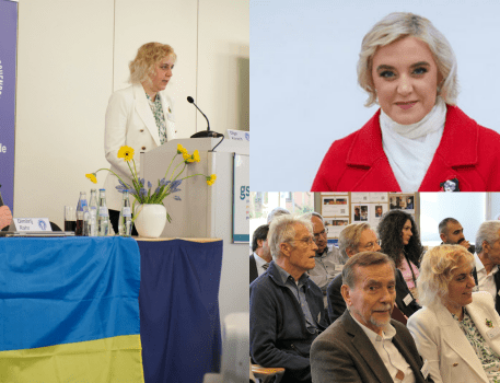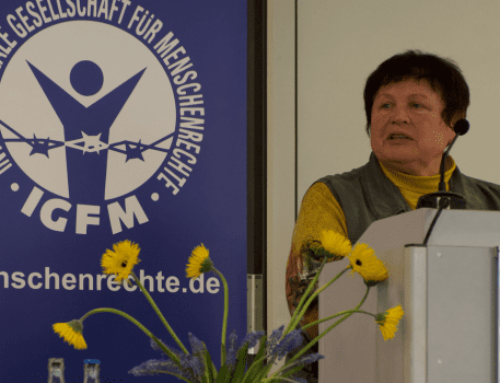Stanislav Asseyev was able to report from the areas occupied by separatists and Russian secret service forces in eastern Ukraine for two years.

Ein erschütterndes Protokoll des Ausgeliefertseins und der Demütigung: Stanislaw Assejew.
In 2017, he was abducted, imprisoned and tortured. He wrote a harrowing report about this time.
His articles from the Donbass were cult. Stanislav Asseyev’s writing was concise and clear, his tone young and fresh, like short cuts from an everyday life that had suddenly become alien. The journalist picked up all those in Ukraine who could only marvel in bewilderment at the retrosocialist and militant developments in the east of the country.
Columns of tanks, howitzers and artillery on the central Uniwersitezka Street in Donetsk? “Two or three years ago (. . .) I could have bet that a global catastrophe somewhere on the other side of the world was more likely,” wrote Stanislav Asseyev in an article for the newspaper “Ukrainski Tischden” in March 2015.
For two years, the journalist was able to report from the areas occupied by separatists and Russian intelligence forces in eastern Ukraine under the pseudonym Stas Vasin. In May 2017, he was abducted in the centre of Donetsk. “They dragged me into a car and put a bag over my head,” says the journalist at our meeting in Kiev. He still doesn’t know how his cover was blown.
Dachau of the Donbass
Stanislav Asseyev is a little pale, you can tell he doesn’t get much sleep. He smiles softly and tells us that he has just returned from training for the front. He wants to fight in Avdiivka, but he still has to cure his knee. He has ruined it by running so often, which, along with writing, has helped him to find his way back into life.
Stanislaw Assejew’s book published by Suhrkamp, “Heller Weg, Donezk. Report from a Torture Prison”, published by Suhrkamp, bears witness to 969 days of imprisonment in the so-called “Donetsk People’s Republic”. With almost scientific precision, the author dissects a system of arbitrariness and humiliation created by the Russian secret services. At its centre: Isoljazija, a torture prison in a former insulation factory in Donetsk. Until 2014, the disused factory served as an exhibition and event space for artists and activists. The address is Heller Weg 3 – in reference to Lenin’s promise of a bright path to communism. In his book, Stanislav Asseyev summarises that it once again led to the abyss.
Isoljazija is apostrophised as the “Dachau of the Donbass”, a “place inaccessible to any sense. Also inaccessible to forgiveness.” Officially, the prison run by the Russian secret service does not even exist, a licence for the violent sadists who call the shots there.
“When the cell door opened, you had to immediately pull a bag over your head, stand with your back to the door and hold your hands behind your back,” reports Stanislav Asseyev. Anyone who didn’t stand at attention within seconds was beaten under the plank bed and made to bark like a dog. The guards then laughed, just like during the torture with Elektroschocks.
Torture and laughter
“The procedures”, as the torturers call their methods, are part of everyday life in Isoljazija prison. “When they torture and laugh at the same time, it builds up even more pressure. Because that means that nothing can stop these people,” Asseyev explains matter-of-factly, making a gesture with his hand as if he simply wants to wipe away all these atrocities and erase them from the world once and for all.
He now hardly has any nightmares himself, and only rarely has trigger moments, he says. Only one spot on his thigh is still sensitive. During interrogations, the baton always thundered down just above his right knee. Always on the same spot. Under torture, Stanislav Asseyev was forced to confess to “espionage”.
“Bright Path, Donetsk” is a harrowing record of being at the mercy of others and of humiliation. It adds a contemporary contribution to the camp literature of the 21st European century; the report from the torture prison makes a frightening comparison between the Nazi concentration camps or the Stalinist gulag and today.
Stanislaw Assejew writes from the perspective of the journalist concerned, who tames the experience, divides it into chapters and asks, for example, about the motives of the perpetrators. Stylistically, he opts for an almost “atonal writing”: objectively and precisely, he gets to the bottom of the nature of tyranny with analytical acuity. He understands Isoljazija as a place of truth about the Putin regime, as its essence and epitome, where power imbalance, senselessness, existential exposure and fear are concentrated.
In the chapter on “absolute evil”, the author focuses on the commander of Isoljazija, without whom the system “would not have existed”. “Everyone called him Palytsch. (. . .) An inveterate sadist, perpetrator of violence, executioner and alcoholic with a classic personality disorder and at the same time a subtle psychologist and a manipulator with a sense of humour.” The prisoners are helplessly at the mercy of his unrestricted cruelty.
Naming evil
“Palytsch” is a corruption of “palatsch”, which means “executioner” or “torturer” in Russian. In fact, the man’s name is Denis Pavlovich Kulikovsky, a Ukrainian born in 1984. Part of the explosive nature of the case is that two years after his release in a prisoner exchange in winter 2019, Stanislav Asseyev learnt that his tormentor was also living in Kiev – and completely unmolested. The realisation was the “biggest challenge” for him, says Stanislav Asseyev. A re-traumatisation with literally monstrous force.
He turned to investigative journalist Christo Grosew from the Bellingcat research network. A week later, the two journalists knew where Palytsch lived. He had served himself as an informant for the Ukrainian secret service SBU in order to escape an alleged threat in the “Donetsk People’s Republic”. Stanislav Asseyev ensured that the deal came to an end. In November 2021, the former commander of Isoljazija was arrested by the SBU. After a trial lasting almost six months, Denis Pavlovich Kulikovsky was sentenced to fifteen years in prison in Kiev on 3 January this year.
The arrest of his torturer prompted the journalist to set up the Justice Initiative Fund (JIF), an online platform on which perpetrators of war crimes are listed and money is offered in exchange for information. “Evil must have a name” is both his motto and his mission. “What kind of people are these?” asks Stanislav Asseyev in one chapter of “Bright Path, Donetsk”. And comes to the tragic conclusion that they are “those who walked along the same streets with us before the war, queuing in the same line for bread”. It is the “absolute power imbalance in the smallest of spaces” that causes “some to revel in the suffering of others”.
According to: nzz.ch








Leave A Comment